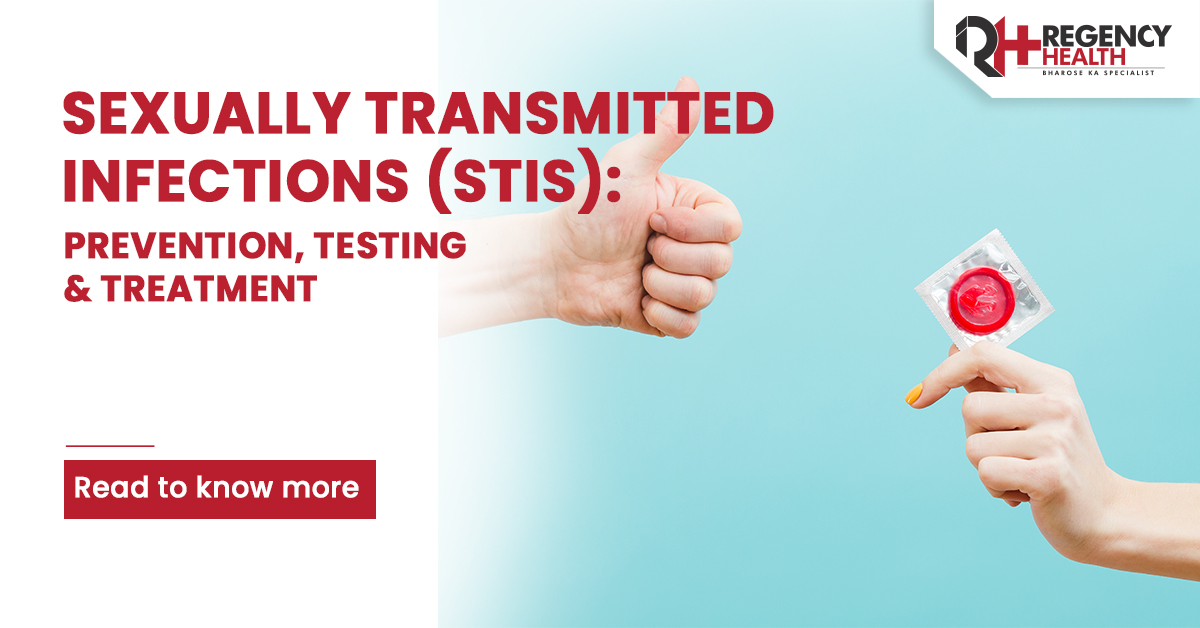
Sexually Transmitted Infections (STIs) are infections spread among people through sexual contact with each other. Typically, they are spread by anal, oral, or vaginal intercourse. However, they can occasionally be transmitted by additional sexual contact with the penis, vagina, mouth, or anus. This is due to the fact that some STDs, such as herpes and HPV, are spread through skin-to-skin contact. STIs come in a variety of forms and burning, itching, or discharge in your genital area are some of the most typical symptoms. Since certain STIs are asymptomatic, you might not experience any symptoms and get infected without a sign.
STIs are severe conditions that require medical attention. Some, such as the human immunodeficiency virus (HIV), can be fatal and don’t have any treatment.
Types of Sexually Transmitted Infections
Some of the most common Sexually Transmitted Infections include:
- HIV/ AIDS
- Genital Warts
- Chlamydia
- Hepatitis B
- Herpes
- Pubic Lice
- Gonorrhea
- Syphilis
- Vaginitis
Symptoms of Sexually Transmitted Infections
Sexually transmitted infection’s symptoms vary with their type. In some cases, there is a possibility that the patient might not experience any symptoms. If they do, then they might appear around the genital area. Some symptoms include:
- Warts, bumps, or sores on your mouth, penis, vagina, or genital area
- Extreme swelling or itching close to your vagina or penis
- Discharge from penis
- Vaginal discharge that smells unpleasant irritates or is unusual in color or quantity from typical
- Bleeding in the cervix
- Painful sex
- Urination that hurts or that occurs frequently
Apart from the above, you may also experience symptoms such as:
- Rashes on skin
- Loss of weight
- Diarrhea
- Sweating during night
- Fever, chills, aches, and pains
- Jaundice
Prevention of STIs
You can take the following actions to safeguard both yourself and others from sexually transmitted diseases:
- Avoid having sex if you are experiencing STI symptoms until you have seen a doctor and received treatment. When your doctor gives an all-clear, you can resume.
- Follow the treatment recommendations given to you by your doctor.
- After finishing therapy, go back to your doctor to be rechecked.
- Make sure your spouse or partners are aware of your positive diagnosis and are getting treatment as well.
- When having sex, especially with new partners, always use condoms.
- Receive routine STI testing. By doing this, STIs can be kept from spreading to your partner. Before engaging in your first sexual encounter with someone, insist they get tested.
- Find out more about STIs. You can better protect yourself and your companions the more you know.
How are sexually transmitted infections spread?
The majority of STIs are spread by sexual contact with bodily fluids or through skin-to-skin contact with an infected body area, generally the genitalia. Certain STIs like Syphilis can be spread during childbirth. It’s vital to see a healthcare professional for treatment if you have an STI. Some STIs can be treated while others can just be contained. If you engage in sexual activity, you can stop the transmission of STIs by getting tested frequently, discussing your diagnosis with your partners, and using protection when having sex.
STI Testing
STI test is a medical diagnostic procedure in which a medical professional will examine your symptoms and suggest a test or multiple ones identify the underlying problem. Every form of STI can be detected using a separate test. You will discuss the test(s) you require with your doctor. STI testing could consist of:
- A urine test
- Cheek swab
- A blood test
- Fluid samples. a bodily discharge or cell sample, typically from the throat, vagina, urethra, penis, or anus.
Most STI tests are painless. You might experience a tiny pinch during a blood test or a sting when a swab is placed on an inflamed area.
Sexually Transmitted Infections treatment
Treatment for sexually transmitted infections aims to:
- Cure most STIs (but not all)
- Minimize your symptoms
- Ensure that you won’t spread the infection.
- Assist you in maintaining and achieving better health
Taking drugs like these could be part of an STI treatment plan:
- Antibiotics
- Antivirals
You can receive an injection from your doctor or take these medications orally (by mouth).

 Call-an-Ambulance
Call-an-Ambulance



